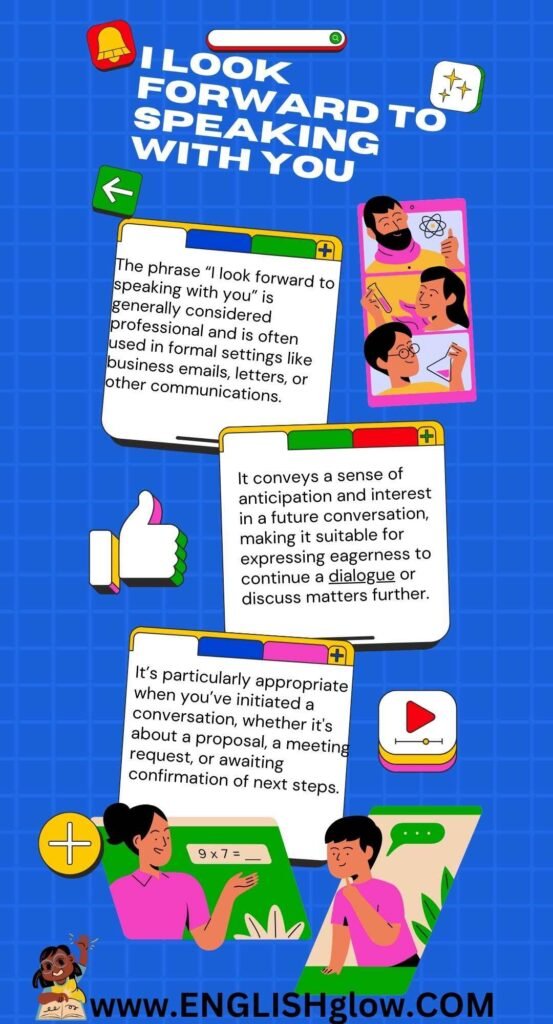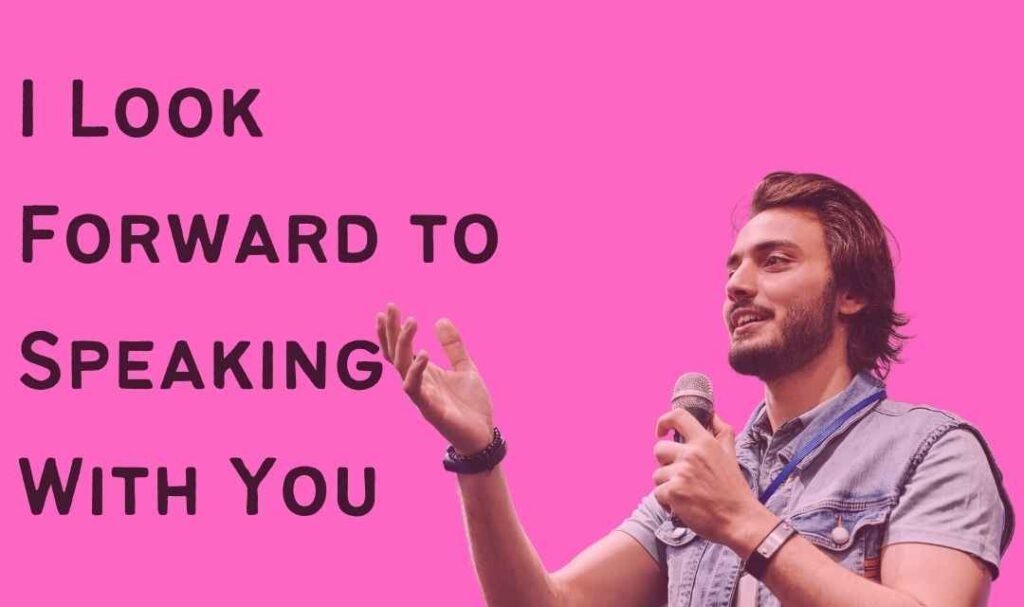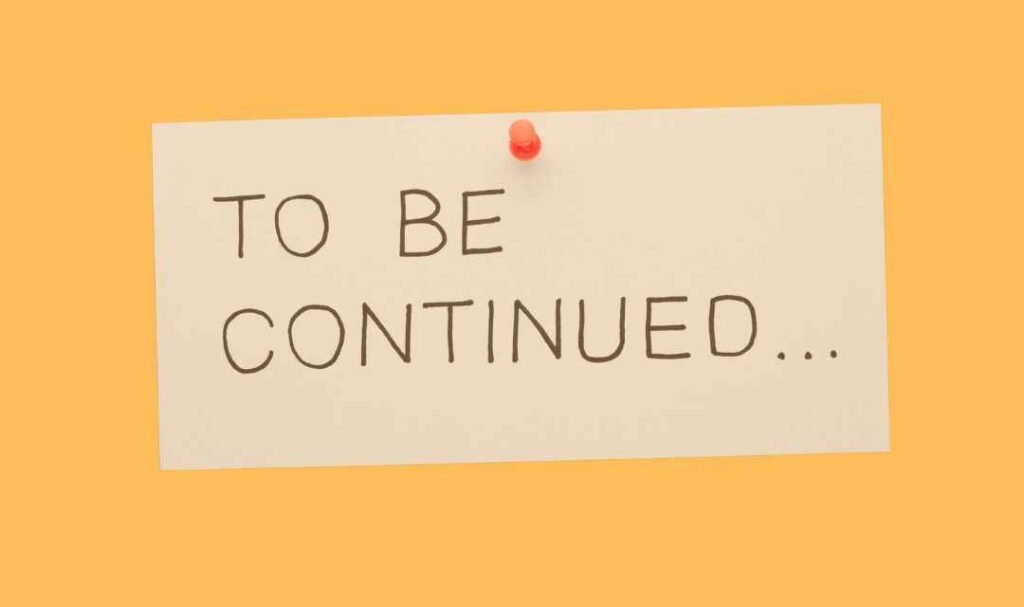In professional communication, “I look forward to speaking with you” is a common and effective phrase for conveying anticipation of a forthcoming conversation. However, using this repetitive phrase too often can dilute its impact. Instead, you can introduce 10 refreshing alternatives to elevate your communication and make a lasting impression. For example, you might say, “I’m eager to continue our discussion” or “I’m excited to connect with you soon.” These alternatives offer unique nuances and are fitting for different contexts, whether you’re guiding a conversation in a meeting or fostering positive connections in a business setting. Selecting the right expression can introduce a refreshing perspective and help you stand out among your correspondents. By adapting your language, you not only avoid overusing the phrase but also ensure that your words make an impact, especially when time is of the essence and you’ve heard key answers or questions that require follow-up.
Is It Professional to Say “I Look Forward to Speaking With You”?
The phrase “I look forward to speaking with you” is generally considered professional and is often used in formal settings like business emails, letters, or other communications. It conveys a sense of anticipation and interest in a future conversation, making it suitable for expressing eagerness to continue a dialogue or discuss matters further. It’s particularly appropriate when you’ve initiated a conversation, whether it’s about a proposal, a meeting request, or awaiting confirmation of next steps. The phrase helps close a message in a polite and respectful way, indicating your readiness and openness for further interaction, and it’s an effective way to signal that you’re awaiting a response.
Pros:
Conveys a sense of eagerness and readiness to engage in further conversation, making it clear you’re prepared to move forward.
Establishes a positive, professional tone that helps to create a welcoming atmosphere in communication.
Encourages a prompt response, as it shows you are interested in continuing the dialogue and moving ahead with the discussion.
Adds a layer of professionalism by politely showing your enthusiasm for the upcoming interaction, fostering a healthy exchange.
Encourages the recipient to feel valued and reinforces the expectation of ongoing communication.
Cons:
Seen as overly formal in casual or less formal settings, which may not always fit the tone of the conversation.
In some industries, using this phrase may feel stiff or out of place, especially when a more relaxed approach is appropriate.
The phrase could become overused, potentially reducing its impact and making it seem less genuine to the recipient over time.
If used too frequently, it may come across as repetitive, diluting the sincerity of the message, especially in regular correspondence.
When crafting a message, it’s important to choose the right phrase that fits the context. While “I look forward to speaking with you” is widely accepted and understood, you might want to use an alternative phrase to stand out and better match the tone of your message or relationship with the recipient. For example, instead of the common phrase, you could explore different synonyms or alternatives that help personalize your communication, making it feel more tailored and less formulaic. This creative approach can be more appropriate in casual or informal contexts, or when you want to express anticipation in a more unique way. Choosing the right alternative allows you to enhance your connection and make your message memorable, as it shows you’ve put thought into the conversation. By exploring different ways to express excitement for a future conversation, you can make your communication feel more genuine and engaging.
You might enjoy reading: Loot vs Lute Uncovering the Surprising Connection
10 Other Ways to Say “I Look Forward to Speaking With You”
Exploring synonyms or rephrased expressions can refresh your communication and help you tailor your message to the recipient and the situation. Instead of using the common phrase, you can choose from a list of 10 alternatives that carry a similar sentiment but offer more variety in tone and form. For example, phrases like “I’m excited for our conversation” or “I can’t wait to chat” can be more casual, while “I eagerly anticipate speaking with you” is more formal. These alternatives allow you to keep your communication fresh while maintaining the same polite and professional tone.
Eagerly awaiting our conversation
Excited to discuss further
Anticipating our dialogue with interest
Looking forward to our forthcoming discussion
Cannot wait to delve into our conversation
Keen to continue our discussion
Ready to explore this topic in our talk
Enthusiastic about our next conversation
Awaiting our conversation with great interest
Gearing up for our discussion
1. Eagerly awaiting our conversation
Using “eagerly awaiting our conversation” as an alternative to the standard phrase adds a layer of eagerness and anticipation. It suggests immediate interest, which can be more personal and engaging, particularly effective when you have an established rapport with the recipient. This phrase conveys a stronger sense of interest compared to more generic expressions and is perfect for situations where the upcoming conversation is pivotal. It creates a sense of excitement, implying that you’re not just looking forward to speaking, but also truly interested in the exchange.
2. Excited to discuss further
“Excited to discuss further” is an ideal version to convey enthusiasm and willingness to delve deeper into a subject or matter. This phrase is perfect for upcoming conversations where you’re looking forward to exploring opportunities, brainstorming, or planning together. It emphasizes a collaborative approach and signals that you’re eager to take the conversation to the next level, making it sound more dynamic and engaging than just a basic response.
3. Anticipating our dialogue with interest
“Anticipating our dialogue with interest” is a phrase that emphasizes the excitement of an upcoming two-way interaction. This expression is particularly suited for situations where you expect detailed discussions or a valuable exchange of ideas. It suggests that you are eager to hear the recipient’s input and are interested in their perspective, implying respect for their feedback. This phrase conveys the idea that you’re not just waiting for a conversation, but are truly engaged and look forward to a meaningful discussion.
4. Looking forward to our forthcoming discussion
“Looking forward to our forthcoming discussion” is a more formal option that is particularly well-suited for professional contexts. It’s ideal when you want to emphasize the importance of a planned or scheduled upcoming conversation. This phrase conveys a sense of professionalism and readiness, making it perfect for situations where the nature of the conversation is significant and requires a serious tone. It helps set the stage for a thoughtful and productive exchange.
5. Cannot wait to delve into our conversation
The phrase “Cannot wait to delve into our conversation” communicates a high level of enthusiasm and impatience, making it perfect for eagerly anticipated discussions. It conveys that you are not just looking forward to speaking, but are excited to explore the content of the conversation in-depth. This phrase is ideal for situations where the discussion is expected to be rich and meaningful, and where you want to express pleasure and excitement about speaking both professionally and personally.
6. Keen to continue our discussion
“Keen to continue our discussion” is a suitable alternative that underscores your enthusiasm and proactive desire to keep the momentum of a previous conversation going. It’s perfect when you’ve had a meaningful exchange and want to follow up on the points discussed, showing that you’re eager to delve deeper into the topic. This phrase conveys a continued interest in the subject and a commitment to progressing the conversation further.
7. Ready to explore this topic in our talk
The phrase “Ready to explore this topic in our talk” speaks to your readiness and preparation for a focused and specific discussion. It implies that you’re eager to zero in on a particular subject or issue during the conversation, making it well-suited for scenarios where the discussion is meant to address key points in-depth. This version conveys a sense of enthusiasm to dive into a particular area of the topic, ensuring a productive exchange.
8. Enthusiastic about our next conversation
The phrase “Enthusiastic about our next conversation” mirrors the original sentiment of looking forward to speaking but injects an extra dose of enthusiasm. It’s particularly useful when you want to show that you’re not just anticipating the conversation, but are genuinely excited about the upcoming scheduled discussion. This expression is perfect for recurring or series of discussions, highlighting anticipation and a strong wanting to continue the conversation with renewed energy and interest.
9. Awaiting our conversation with great interest
The phrase “Awaiting our conversation with great interest” offers a formal alternative that conveys eagerness and interest in a respectful tone. It is useful when you want to express anticipation for discussions, especially with new contacts or higher-ups whom you don’t know well yet. This expression implies that you are looking forward to the conversation in a thoughtful, professional manner, signaling your genuine curiosity and engagement.
10. Gearing up for our discussion
The phrase “Gearing up for our discussion” implies active preparation and communicates your readiness to engage in a conversation. It is well-suited for situations where there are action points or decisions that need to be made after the conversation. This expression signals that you’re not just waiting, but actively taking the initiative and getting ready to follow through on the expected outcomes. It shows that you’re fully prepared for the discussion ahead and the actions that will follow.
Is it Correct to Say “Looking Forward to Speaking With You”
The short answer is yes, it is grammatically correct to say “Looking forward to speaking with you”. It is simply a shortened version of “I look forward to speaking with you”, and both are commonly used. Some people drop the “I” to make the phrase less formal and more conversational, making it less stuffy. This version is often seen in casual or more relaxed settings. You could also say “I’m looking forward to speaking with you”, which adds a bit more emphasis. The omission of “I” in the sentence is an example of what’s called situational ellipsis, where words are left out for simplicity or ease of communication.
Look Forward to Speaking With You
The phrase “look forward to speaking with you” is commonly used in both professional and casual communication, but it’s important to note that it is not grammatically complete on its own. The phrase is a prepositional phrase, where “to” functions as a preposition and should be followed by a direct object. In this case, “speaking with you” acts as the object of the preposition “to.” While it’s widely accepted and understood in everyday usage, it might be seen as incorrect in formal grammar contexts where a direct infinitive marker is needed. Therefore, to make the sentence correct in more formal settings, you might prefer using “I look forward to speaking with you”, which includes the subject and verb, making it a complete sentence.
Is “Looking Forward to Speaking With You” Professional
The phrase “Looking forward to speaking with you” is generally acceptable in professional communication, but its level of formality depends on the context. While it is grammatically correct, it leans towards being slightly less formal than other traditional business phrases. There are two reasons why it may be seen as a bit casual: First, it’s a shorter version of the more formal “I look forward to speaking with you,” which can be appropriate in many business contexts today. Second, over the years, it has become more casual compared to its formal counterpart, and might sound a little stuffy in certain professional situations like interviews or when communicating with someone you don’t know well. However, it’s not necessarily bad; it’s just less formal and works better in more relaxed settings within the business world.
Is It Better to Say “To You” or “With You”
Both “looking forward to speaking with you” and “looking forward to speaking to you” are grammatically correct, but they carry different connotations. The phrase “with you” tends to be perceived as friendlier and gives the impression of a more interactive conversation, as if both parties are engaged equally in the discussion. On the other hand, “to you” implies that one person is doing most of the talking, with the other listening. The choice of words depends on the context and the type of relationship. For example, in mentorship situations, “to you” might feel more appropriate because it suggests the speaker is delivering information. Additionally, depending on where you live, the usage may vary—”with you” is more common in the US, while “to you” is more common in the UK. It’s important to choose wisely, considering the tone you want to set.
You might enjoy reading: Is County Capitalized? Unlock the Secret to Proper Usage
Why We Say “Looking Forward to Speaking With You”
The phrase “Looking forward to speaking with you” is commonly used in professional communication, such as emails, phone calls, and during job interviews. It’s a polite way of expressing interest in continuing a conversation, whether you’re following up on a job or preparing for an interview. This phrase shows enthusiasm and interest, signaling that you’re eager to engage and hear what the other person has to say. It’s a respectful and appropriate expression, commonly used in networking events or when invited to discuss a position or qualifications in more detail. Saying “Looking forward to speaking with you” reflects a positive attitude and helps build a professional rapport, indicating you’re ready to hear and value the other person’s input.
Final Thoughts
Choosing the right words to express anticipation for future conversations is more than just a formality; it’s a way to show genuine interest and build stronger professional relationships. The alternatives provided here not only serve as synonyms for “I look forward to speaking with you,” but they also add variety and specificity to your communications. By carefully selecting phrases that match the tone and context of your relationship, you can enhance the clarity and warmth of your message. Whether you’re aiming to convey eagerness, readiness, or enthusiasm, there’s an expression tailored to every situation. Ultimately, the goal is to make every word count, ensuring that anticipation for the conversation ahead is felt and appreciated by both parties.
You might enjoy reading: 25 Other ways to say let me know if you need anything






